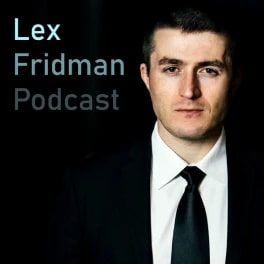

This article is an excerpt from the Shortform guide to "Lex Fridman Podcast". Shortform has the world's best summaries and analyses of books, podcasts, and more.
Like this article? Sign up for a free trial here.
Why is divorce so hard? Do you need a prenuptial agreement?
Divorces can be hard, no matter how long you’ve been married. In an episode of the Lex Fridman Podcast, James Sexton joins Fridman to talk about the legal and emotional stakes that can have a profound effect on the divorce process.
Take a look at why divorce is almost always complicated.
The Hard Process of Divorce
Steering the conversation toward his professional experience, Sexton delves into why divorce is hard for many separated couples. He introduces an unorthodox idea of using psychedelic substances like psilocybin or MDMA for divorce mediation.
This concept, although unfeasible from a legal perspective, is one that Sexton believes could revolutionize divorce proceedings by fostering empathy and deep self-reflection. Following his perspective on this new approach, he expands on the public’s perception of divorce lawyers, comparing their roles to other legal professionals.
Sexton uses an anecdote about an unfulfilling investment in a pricey piano humidification system to draw a parallel with the similarly disappointing feeling often associated with divorce.
Finally, Sexton discusses the struggles judges often face in maintaining impartiality due to personal biases and experiences. He underlines the delicacy of judicial roles in divorce cases.
Navigating the Labyrinth of Wealthy Separations
Sexton delves into high-profile divorces referencing Kevin Costner’s experience. He sheds light on how Costner’s financially burdensome divorce led to the establishment of a robust prenuptial agreement in this subsequent marriage. This instance underscores the unpredictable nature of career paths and the importance of future-proofing oneself.
Particularly demonstrated by star-studded career shifts like Costner’s role in the hit series ‘Yellowstone’, it shows the need to adapt. Using prominent real-life examples like the Johnny Depp-Amber Heard trial, Sexton provides a vivid illustration of the challenges intrinsically linked with large-asset divorces.
Sexton observes that those who earned their wealth often have an ingrained discipline and regimen, making disruptions like divorce significantly challenging. This perspective paints a picture of the intertwining connections between personal life upheavals and financial stability.
The Role of Prenuptial Agreements
Sexton also digs deep into the concept of prenuptial agreements. He defines them as measures to establish financial rights and responsibilities before marriage.
He urges for a greater understanding of the significance of these agreements to prevent potential conflict and misunderstandings.
The Emotional Elements within the Justice System
The conversation navigates through the incredibly emotional elements within the justice system, particularly visible in child abuse cases. Adding depth to this, Sexton introduces the concept of ‘parental alienation’ as a legal challenge. This is a subtle manipulation where one parent influences a child’s perception of the other parent negatively.
Additionally, Sexton and Lex Fridman discussed the high level of emotional involvement especially by parents in child abuse cases, which often trigger immediate judgments thus potentially putting due process at risk. Sexton strongly argued that justice should not be compromised by emotional responses, and illustrated his firm commitment to this principle by recounting his disagreement with a district attorney over the handling of a child sexual abuse case.
Despite deceitful tactics often employed in courtroom, Sexton maintained that adhering strictly to law guidelines and procedures offered its own rewards.
Divorce: A Metaphoric Game of Chess and the Journey Towards Self-Improvement
Using the metaphor of a chess game, Sexton muses the objective of competent divorce attorneys—like good chess players—is to minimize unnecessary disputes. He goes further to express his belief that an impending divorce serves as an opportunity for self-improvement and introspection. It offers people a chance to contemplate radical self-change and see the situation as a starting point for a new phase of life after the breakdown of a marriage.
By realizing and accepting defeat promptly, one can avoid needless prolongation of hostilities, mirroring the strategy employed in a chess game.
Divorce proceedings can be emotionally charged and complex, involving various legal and personal elements. To fully understand this podcast episode, it is helpful to have background knowledge on divorce proceedings, the role of divorce lawyers, high-profile divorces, prenuptial agreements, emotional elements within the justice system, and the metaphor of chess. Additionally, exploring related topics such as legal mediation methods and financial planning in marriages can provide further context.
One intriguing theme discussed in this episode is the use of psychedelic substances for divorce mediation. Psychedelic compounds like psilocybin (found in certain mushrooms) and MDMA (commonly known as ecstasy or molly) are being studied for their potential therapeutic effects. Some experts suggest that these substances could aid in resolving emotional conflicts during divorces by promoting introspection and empathy. However, ethical implications surrounding their use in legal processes remain a subject of debate.
Another important theme centers around the public perception of divorce lawyers. High-profile divorces often attract media attention and shape public opinion about divorce proceedings. The outcomes of these cases can also set legal precedents that influence future decisions. Furthermore, challenges arise in high-asset divorces where significant wealth is at stake. Prenuptial agreements play a crucial role in financial planning by establishing rights and responsibilities should a marriage end in separation or divorce.

———End of Preview———
Like what you just read? Read the rest of the world's best guides to Lex Fridman Podcast" at Shortform.
Here's what you'll find in our full Lex Fridman Podcast episode summaries:
- Interviews with a myriad of public figures from politics, entertainment, and business
- Discussions on everything from global politics to AI to music
- Perspectives on the world today from voices across the political spectrum






